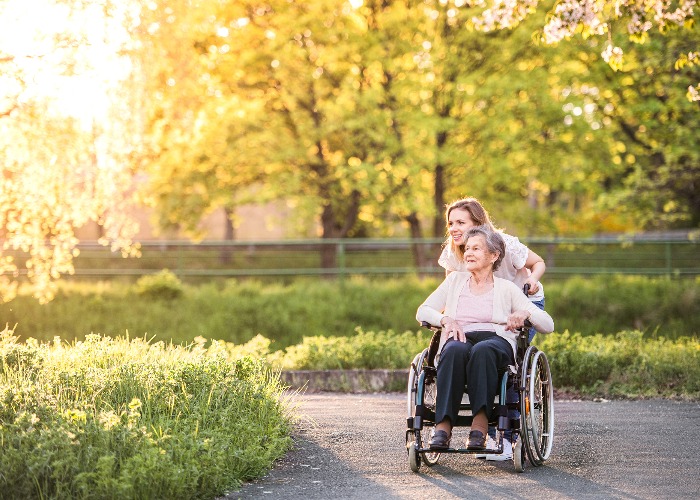Attendance Allowance: what it is, who’s eligible and how to claim

Find out if you're eligible for the Attendance Allowance, how much it pays and how to claim it.
Sections
What is the Attendance Allowance?
Attendance Allowance is a benefit paid to help people over the age of 65 who require extra help or whose personal wellbeing may be compromised due to physical or mental disabilities.
While many people use the allowance to pay for a carer or other help around the house, the recipient can use the money as they see fit.
For example, they may spend the money on specialist equipment such as a chair or hoist to enable them to remain independent in their home.
Carer's Allowance: what it pays, who's eligible and how to claim
It’s tax-free and isn’t means-tested, so this means that your savings and any other income or benefits won’t affect how much you get.
In fact, if you’re eligible for Attendance Allowance, you may be entitled to additional benefits such as Pension Credit, housing benefit or a discount on your Council Tax bill.
Or if you already claim any of these benefits, you may be entitled to an increased payment.
How much can you get?
The allowance is paid weekly and at two different rates, depending on the level of care you need.
The lower rate is paid to people who need help or supervision either throughout the day or at night, while the higher rate is paid for help or supervision throughout the day and night, or if you’re terminally ill.
For the tax year 2019/20, the rates are £58.70 per week for the lower rate and £87.65 for the higher rate. Similar to other benefits, Attendance Allowance is paid directly into your bank account.

Who is eligible to claim Attendance Allowance?
To be eligible to claim, you must be State Pension age, have a physical disability (including sensory disabilities such as sight or hearing impairments) or a mental disability (including learning difficulties or dementia) and you must have needed help for at least six months.
If you’re terminally ill, you should be able to claim sooner.
As the eligibility for Attendance Allowance is based on the help you need rather than the help you actually get, it’s important to understand what this means.
To be eligible, you will need help with ‘personal care’, which includes getting washed and dressed, eating, going to the toilet or communicating with others.
Alternatively, you may need to be supervised to ensure you don’t pose a safety risk to yourself or anyone else.
For example, your safety could be seen to be at risk if you have fits, dizzy spells or blackouts and need someone to supervise you.
If any of the above applies, you could be eligible to claim.
What pension benefits are you entitled to?
How to claim Attendance Allowance
Once you’ve determined that you do require help and could be eligible to claim Attendance Allowance, you’ll need to put in your claim.
Download an Attendance Allowance form. If you are unable to do this, call the helpline on 0800 731 0122 to seek assistance.
The form is split into two sections. The first section is for you, and the second is for your carer (if you have one).
According to Age UK, “many applications are turned down because people don’t mention or aren’t clear about how their illness or disability affects their lives.”
So, be sure to include any relevant information when you complete your claim form.
Once your claim has been processed, your Attendance Allowance can be backdated to the date of your claim. This is usually the date your form is received or the date that you call the enquiry line.
If your circumstances change, for example, you go into hospital or a care home, or if your condition worsens, you must contact 0800 731 0122, so that your benefits can be adjusted accordingly.
It is also possible to challenge a decision about your claim if you disagree, which is known as a mandatory reconsideration.
Comments
Be the first to comment
Do you want to comment on this article? You need to be signed in for this feature